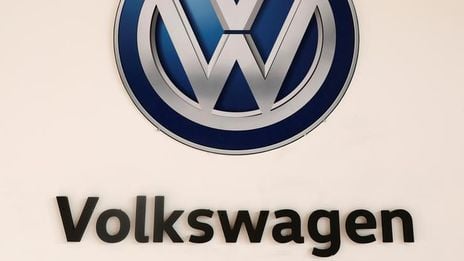DETROIT (Reuters) - General Motors Co (>> General Motors Company) reiterated a plan to position its struggling Opel line as a more expensive brand in Europe, while carving out a space for its mainstream Chevrolet nameplate as its value offering on the continent.
Alan Batey, Chevy's new global chief, reaffirmed GM's intention this week to boost pricing as it rolls out newer vehicles at Opel in the hope of improving the money-losing European brand's profits. The idea is to build on the early strong demand for the Mokka, a small SUV, and the Adam minicar, he added. Success would, in turn, let GM create more room for Chevy to operate in a region where its sales have been limited.
Opel has lost money for 13 straight years in Europe.
"We need to rebuild the (Opel) brand," Batey said on a conference call on Tuesday after an analyst asked how GM will differentiate between Opel and Chevy in Europe. "As we do that, that gives us the opportunity to move Opel and Vauxhall up a little bit, which creates potentially a value opportunity" for Chevy.
Vauxhall is Opel's sister brand in the United Kingdom.
"We try and make sure we have as little overlap as possible," he said, adding that there was more to come on the subject.
Batey, who was named global chief of Chevy last month, called Opel the mainstream brand in Europe, and Chevy the value play.
Chevy is GM's global mainstream brand, meant to plant the automaker's flag in every market around the world along with its luxury garage mate Cadillac. Meanwhile, Opel, like Holden in Australia or Buick in the United States and China, is meant to be a successful regional brand.
Opel's share of the European Union's new-car market stood at 6.8 percent in the first five months of the year, unchanged from last year. Chevy's share, meanwhile, slipped by four-tenths of a point to 1.1 percent of the EU's new-car market in the first five months of 2013. In 2012, the auto industry's sales in Europe hit a 20-year low.
OPEL'S IMAGE UNCLEAR
Edward Jones analyst Christian Mayes, who has a "hold" rating on GM's stock, remains sceptical.
While the Detroit automaker's recent purchase of Ally Financial's European auto lending operations could help boost sales by allowing it to offer better loan terms to potential consumers in the region, GM still needs to better differentiate between the Opel and Chevy brands, he said.
"The strategy is still kind of in flux," Mayes said.
It's not the first time GM executives have outlined a strategy to push Opel higher in Europe. GM is targeting break-even results in its European unit by mid-decade.
In January 2010, then-Opel Chief Executive Nick Reilly formulated a plan to move the brand up the value chain as a "leading European manufacturer of high-quality, desirable automotive products, based on German engineering," competing head to head with rival Volkswagen (>> Volkswagen AG).
While Opel churned out cars that steadily became every bit as good as VW's in many cases, its brand image did not keep pace. The idea was to more clearly differentiate the brand from Chevy, which was meant to compete with other value brands.
Reilly's successor, Karl-Friedrich Stracke, said before he was pushed out that Opel moved the brand up market too fast and lost some of its more cost-conscious customers. He pitched the idea last summer of focusing on "traditional and attainable potential customers." Many interpreted that as value-oriented buyers.
Then in March at the Geneva auto show, GM Vice Chairman Steve Girsky, who has led the turnaround efforts at Opel, said the U.S. automaker saw Opel and Chevy co-existing much like VW and its low-cost brand.
"Think of a Volkswagen-Skoda kind of thing. (Opel) will be higher-priced, more features and (Chevy) will be lower-priced," he told reporters.
Opel dealers have voiced frustration with the brand's market positioning, saying GM needs to clearly define whether or not it is a more premium brand. Some have suggested GM should orient Opel to compete with VW's Skoda.
(Additional reporting by Christian Hetzner in Frankfurt and Deepa Seetharaman in Detroit; Editing by Jan Paschal)
By Ben Klayman

 By
By 




